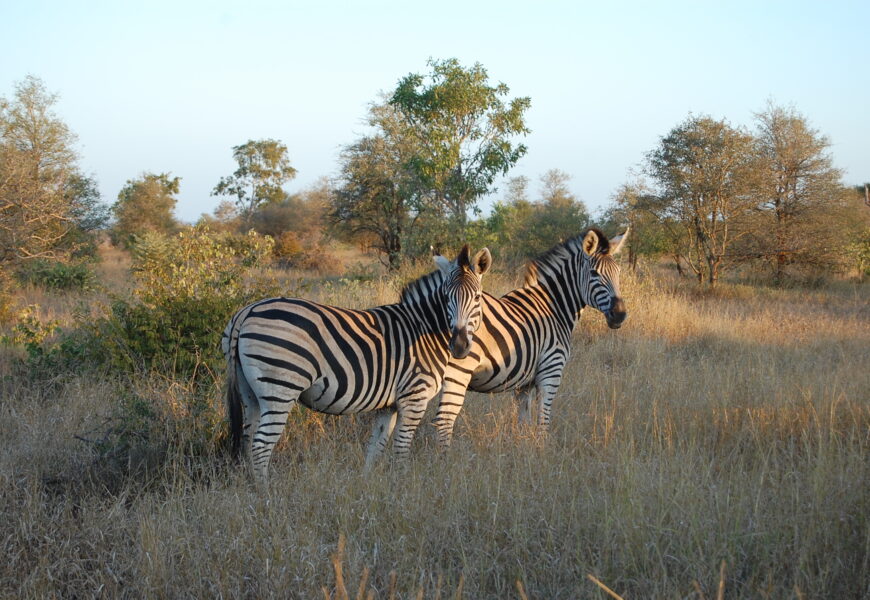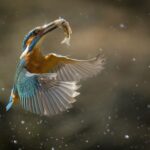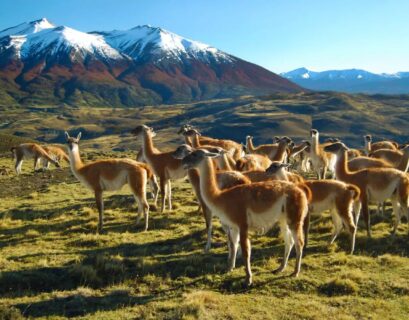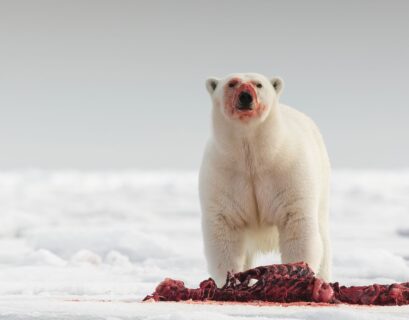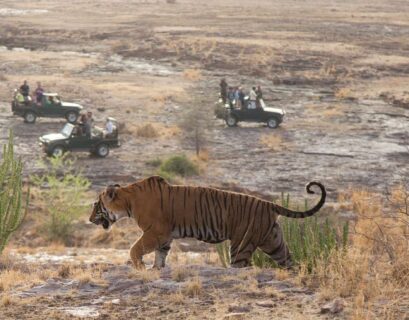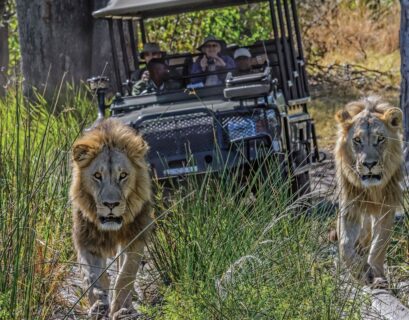Kruger National Park, located in northeastern South Africa, is one of the continent’s largest and most famous game reserves. Spanning nearly 7,523 square miles, the park offers an unparalleled wildlife experience, showcasing the rich biodiversity and stunning landscapes of the African savanna. Here’s an introduction to Kruger National Park and why it’s a must-visit destination for nature lovers and adventurers.
A Wildlife Haven
Kruger National Park is home to an incredible array of wildlife, making it one of the best places in the world for game viewing. The park boasts an impressive variety of animals, including the Big Five: lions, leopards, elephants, rhinoceroses, and buffaloes. These iconic species are among the most sought-after by visitors, but Kruger offers so much more.
Big Cats and Predators
Kruger is a prime location to spot Africa’s big cats. Lions are commonly seen lounging in the shade or stalking prey, while leopards, though more elusive, can often be found resting in trees. Cheetahs, another highlight for visitors, are best seen in the park’s open plains, where their speed can be observed in full flight. Hyenas and wild dogs also roam the park, adding to the excitement of predator sightings.
Elephants and Rhinos
The park’s large elephant population is a major attraction. Herds of elephants can be seen at waterholes, rivers, and throughout the bush. Rhino sightings are also a special treat, with both white and black rhinoceroses present in the park. Conservation efforts are crucial for these endangered animals, and Kruger plays a key role in their protection.
Diverse Herbivores
Kruger’s savannas and woodlands support a multitude of herbivores, from towering giraffes and hefty hippos to graceful antelopes like impalas, kudus, and sable antelopes. These herbivores attract predators and provide endless viewing opportunities for visitors.
Birdwatcher’s Paradise
Birdwatchers will be thrilled by Kruger’s avian diversity. Over 500 bird species have been recorded in the park, ranging from large raptors like eagles and vultures to colorful species such as lilac-breasted rollers and kingfishers. The park’s varied habitats create ideal conditions for a wide range of birdlife.
Stunning Landscapes and Ecosystems
Kruger National Park’s vast expanse encompasses a variety of landscapes and ecosystems, each offering its own unique beauty and wildlife.
Savannas and Grasslands
The central and southern regions of the park are characterized by open savannas and grasslands, which are prime areas for spotting big game. These regions are dotted with acacia trees and waterholes, making them ideal for game drives and wildlife viewing.
Woodlands and Forests
The park’s northern regions feature more woodlands and forested areas, providing a different but equally rich habitat for wildlife. These areas are home to species like nyala and bushbuck, as well as numerous bird species.
Rivers and Waterholes
Kruger is intersected by several rivers, including the Sabie, Letaba, and Limpopo rivers. These water sources are lifelines for the park’s wildlife, especially during the dry season. Watching animals gather at waterholes and riverbanks is a highlight of any visit.
Rich History and Cultural Heritage
Kruger National Park is not only a natural wonder but also a site of historical and cultural significance. The park is home to numerous archaeological sites, including ancient rock art and the remnants of Iron Age settlements. These sites provide insight into the history of human habitation in the region and the cultural heritage of the local communities.
The park is named after Paul Kruger, the former President of the South African Republic, who was instrumental in establishing the park as a protected area in 1898. Today, Kruger National Park continues to honor his legacy of conservation.
Activities and Experiences
Kruger National Park offers a range of activities that allow visitors to explore its beauty and wildlife.
Game Drives
Game drives are the most popular way to experience Kruger’s wildlife. Guided safaris, led by experienced rangers, provide the best chances of spotting the Big Five and other animals. Self-drive safaris are also an option, allowing visitors to explore the park at their own pace.
Walking Safaris
For a more immersive experience, walking safaris offer a chance to explore the bush on foot. Accompanied by armed guides, these safaris provide insights into the smaller details of the ecosystem, such as tracks, plants, and insects, and the thrill of potentially encountering wildlife up close.
Bird Watching
Kruger’s diverse birdlife makes it a paradise for birdwatchers. Early morning and late afternoon birding excursions are particularly rewarding, as the birds are most active during these times.
Cultural Tours
Cultural tours and visits to local villages offer an opportunity to learn about the traditions and lifestyles of the communities living around Kruger National Park. These tours provide a deeper understanding of the region’s cultural heritage and the relationship between people and wildlife.
Conservation Efforts
Kruger National Park plays a vital role in conservation efforts in South Africa. The park’s management focuses on protecting its diverse ecosystems and wildlife, combating poaching, and promoting sustainable tourism. Anti-poaching units and conservation programs are essential in safeguarding endangered species, such as rhinos and elephants.
The park also engages in scientific research and monitoring to understand and manage its ecosystems better. These efforts contribute to global conservation knowledge and practices.
Planning Your Visit
When planning a visit to Kruger National Park, it’s essential to consider the best time to go. The dry season (May to September) is ideal for game viewing, as animals congregate around water sources. The wet season (October to April) brings lush landscapes and newborn animals, making it a beautiful time to visit, although wildlife can be more dispersed.
Accommodation options in Kruger range from luxury lodges and tented camps to self-catering bungalows and campsites, catering to various budgets and preferences. Booking in advance is recommended, especially during peak travel seasons.
Conclusion
Kruger National Park is a jewel of South Africa, offering an unforgettable wildlife experience in one of the world’s most iconic game reserves. From its diverse ecosystems and rich cultural heritage to its remarkable wildlife, Kruger provides visitors with a unique opportunity to connect with nature and witness the beauty of the African wilderness. Whether you’re a seasoned safari-goer or a first-time visitor, Kruger National Park promises an adventure of a lifetime.

